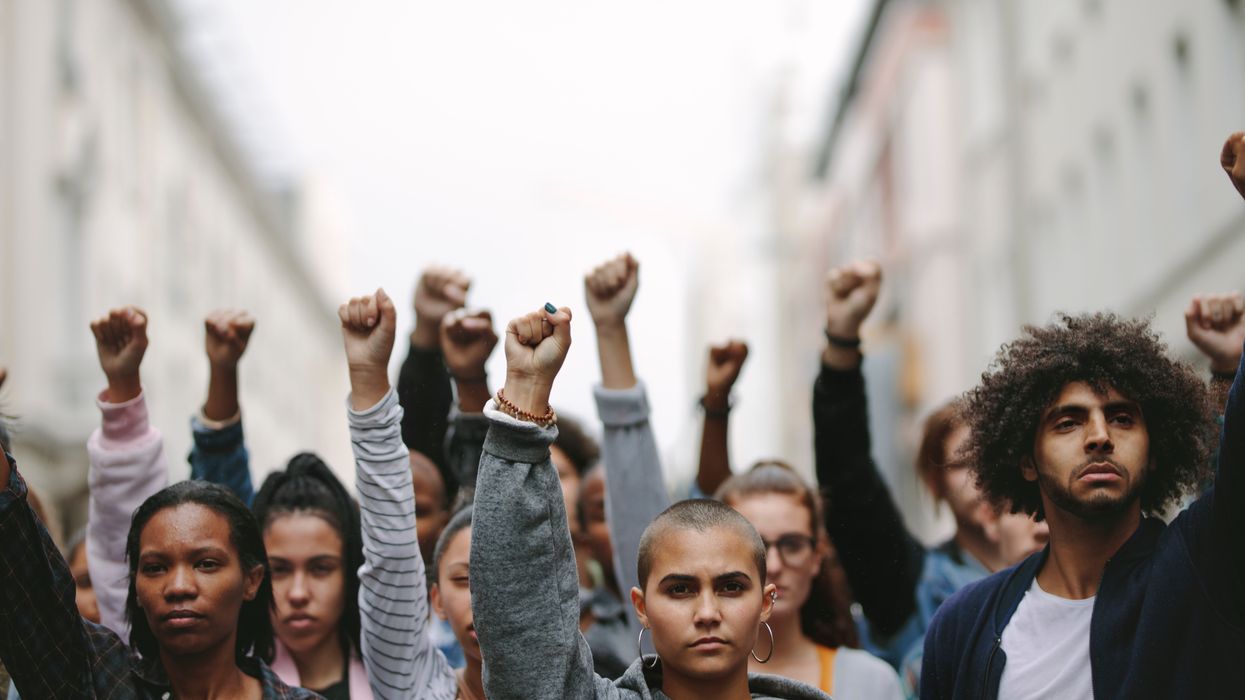Morris is a junior majoring in political communication at George Washington University. She has interned on Capitol Hill and in her congressional district office in Myrtle Beach, S.C.
At 20 years old, I'm one of the 24 million members of Generation Z casting a presidential vote for the first time this year — and it feels important to say that my generation is pissed.
Our ire is not just at President Trump, or because our elections now feel like a three-ring circus. We're mad because, at some point, older generations lost the script about what government is meant to do, and we're the ones who will suffer most.
Since we were kids, our country's been at constant war. Our society maintains massive and growing inequalities, particularly affecting poor and minority communities. Now, a health emergency is killing a quarter million of us while climate disasters ruin lives and livelihoods on both coasts.
If a government's job is to reach consensus to solve problems, then ours is as good as broken. My generation has seen nothing from our political leaders beyond the scuttling of compromise for petty brinkmanship and the omitting of nuance to "win a narrative" — never to advance legislation that helps those hurting the most.
In school we learned that our problems are not simple, the way the politicians couch them. They're systemic, interwoven with and directly impacted by other issues usually treated as unrelated. An embrace of context and nuance, and a clear view of the "other side," are all necessary to fix what ails the county. So-called leaders who refuse to learn this lesson are perpetuating our country's biggest problems and are not the ones we want in office.
We now have the opportunity to vote and to animate those sentiments and push for the prosperous future we deserve, which Washington will not and cannot guarantee us.
I'm from South Carolina, where hurricanes aren't just random events; they're an entire season. This year is my 20th hurricane season, and I've finally heard my father worry out loud that our house could be impacted — even destroyed — by stronger storms and rising sea levels. South Carolina is represented in the Senate by Lindsey Graham, a Republican in a tough race for re-election on Tuesday — and who's supported a president who disparages climate science, even as each year is my state's worst hurricane year ever.
It's not only Republicans. For decades the Democrats have moved away from supporting the working class and toward a cozy relationship with the Wall Street corporate class that lobbies against environmental regulations while funding campaigns. A top donor to Barack Obama's two presidential campaigns was Goldman Sachs, a name almost synonymous with corporate malfeasance and a bellwether for how other firms distribute mountains of cash.
Climate change is the ultimate systemic issue — a fact lost on Trump and his surrogates, whose policy has only helped environmentally irresponsible corporations instead of families like mine. More than anything, it is the context by which our leaders have most distorted their role and violated their oath to protect citizens.
Climate change is not just about homes washing away. My generation is fully versed in how a warming climate exacerbates the issue of race, which also seems completely lost on our representatives. Climate scientists have long deduced that Southern coastal communities with large Black populations — usually adorned with more pavement and fewer trees and foliage than white neighborhoods — are at the greatest risk of sea level rise and storm surge.
My generation does not see these as abstract problems or unfortunate accidents we need to live with. I'm part of our country's most diverse generation, and the killing of George Floyd — plus countless other people of color by police — has exploded our desire for more tangible efforts toward racial justice, an attitude we're taking with us straight to the voting booth.
It was obvious to us that once the coronavirus pandemic hit, it would intertwine itself with the issues of race and climate, and we were right. Covid-19 hurts our most beleaguered communities the most. The president sidestepped a federal response for letting state governors respond individually to a virus that doesn't acknowledge state lines — a heartbreaking lack of judgement that others could not or would not do anything about.
Epidemiology is now a partisan flashpoint. ICUs are overflowing again. We're a laughingstock internationally, and many more Americans should expect to die by next year.
My generation is cursed to live with the fallout of this political inaction for decades, but we can stem the bleeding. This election is not just about Trump and Joe Biden. It's about animating large-scale reform to the system that allowed irresponsible representatives into office in the first place. It's about finally forcing efforts to address issues that have long been ignored.
The pandemic has robbed my friends and me of our college experience. It's for that reason and so much more that our country's historically low young voter turnout is likely to reverse and break all records this week. If seasoned adults won't improve our systems and our standing in the world, Gen Z is committed to doing it ourselves.



















